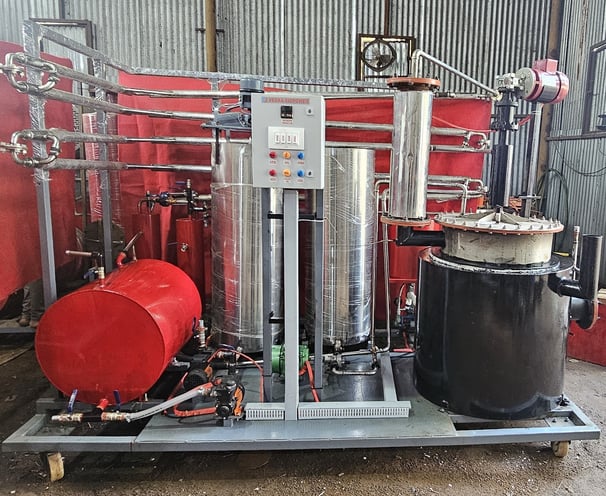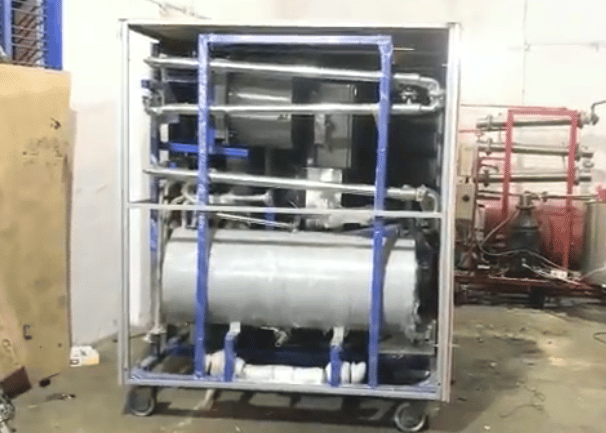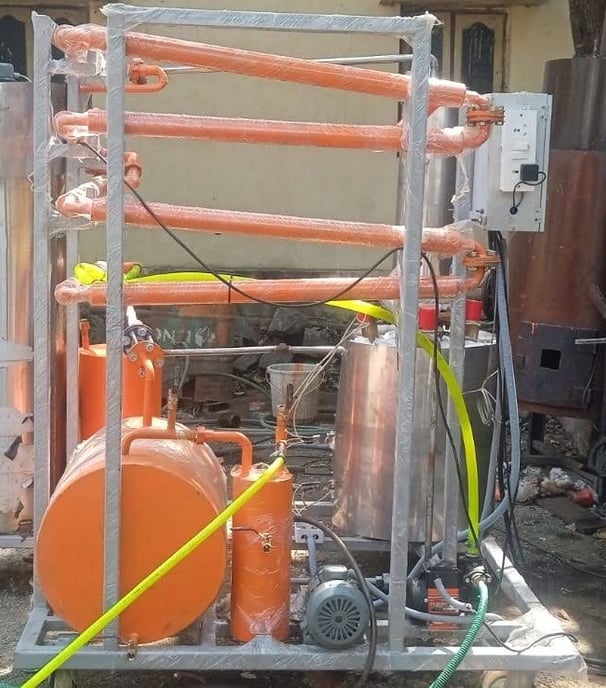Waste Oil to Diesel Distillation: A Sustainable Solution to Global Waste
WHY WE NEED TO RECYCLE WASTE OIL?
The Growing Need for Waste Oil Recycling
Every year, millions of liters of waste oil are discarded, creating a significant environmental hazard. Improper disposal of waste oils, like used engine oil, leads to soil and water contamination, polluting ecosystems and endangering human health. As the world continues to industrialize, the demand for energy rises, making it essential to find sustainable methods of resource management. The waste oil to diesel distillation process presents a promising solution, transforming a pollutant into a valuable resource.

What is Waste Oil to Diesel Distillation?
The waste oil to diesel distillation process is a sophisticated method of recycling used oil and converting it into usable diesel fuel. This process is highly efficient and can recover over 85% of the waste oil in the form of clean, high-quality diesel. The distillation process removes impurities, contaminants, and heavy metals, leaving behind fuel that can be used for a variety of applications, including powering vehicles, generators, and industrial machinery.
The Distillation Process: A Breakdown
Collection and Pre-Treatment of Waste Oil
The process begins with the collection of waste oil from various sources, such as automotive workshops, industrial plants, and shipping industries. Before entering the distillation system, the waste oil undergoes a pre-treatment phase, where impurities like water, sediments, and solvents are removed. This ensures a smoother and more efficient distillation process.Heating and Vaporization
Once pre-treated, the waste oil is heated to a high temperature under controlled conditions. The heating process causes the oil to vaporize. However, unlike combustion, the distillation process takes place in a controlled, oxygen-free environment, preventing harmful emissions from being released into the atmosphere.Condensation of Oil Vapors
The vapors produced during heating are collected and cooled in a condenser. This cooling causes the vapors to condense back into liquid form, resulting in clean diesel fuel. The uncondensed gases can be captured and used as an energy source for the process itself, making the system more energy-efficient.Filtration and Refining
After condensation, the diesel undergoes further filtration to remove any remaining impurities or particulates. This refining stage ensures that the diesel meets industry standards for quality and performance, suitable for use in engines and industrial applications.Byproduct Management
In addition to diesel, the distillation process produces other byproducts, including base oil and asphalt, which can be utilized in various industrial processes. The zero-waste approach means that nothing is left unused, making this an environmentally friendly solution.


Environmental Benefits of Waste Oil to Diesel Conversion
Reduction of Pollution
Proper recycling of waste oil through distillation prevents harmful contaminants from seeping into the environment. This process reduces the need for landfills and illegal dumping, significantly lowering pollution levels.Resource Conservation
By recycling waste oil, we conserve valuable natural resources. Instead of relying on fresh oil extraction, which depletes finite fossil fuel reserves, the distillation process allows us to reuse what has already been extracted.Energy Efficiency
The diesel produced from waste oil has a lower carbon footprint compared to traditional refining methods. Additionally, using the uncondensed gas to power the system itself further enhances the overall energy efficiency of the process.Economic Viability
Converting waste oil into diesel is not only good for the environment but also economically beneficial. Recycled diesel can be used to reduce fuel costs for industries and individuals, offering a cost-effective alternative to conventional diesel.


Applications of Recycled Diesel
The diesel produced through waste oil distillation can be used across a range of industries:








A Global Shift Towards Sustainability
With increasing global awareness about environmental issues, the waste oil to diesel distillation process is gaining momentum as an innovative solution to one of the world’s largest waste management problems. Governments and industries are pushing for stricter regulations on waste oil disposal, making recycling not just a choice, but a necessity.
Investing in waste oil distillation technology allows businesses to meet regulatory requirements, reduce their environmental impact, and unlock a valuable resource in the process. By turning waste oil into diesel, companies can achieve both sustainability and profitability in the long term.
While the waste oil to diesel process is widely acknowledged, finding the right technology to implement this process effectively is crucial. There are many solutions available in the market, but only a few combine advanced technology with proven results.
That’s where industry leaders come in, offering innovative, compact, and scalable waste oil distillation machines designed to cater to businesses of all sizes. With continuous advancements in waste-to-energy technologies, the future of sustainable energy lies in the ability to recycle, repurpose, and reuse.
At the forefront of this movement is a company dedicated to making the world greener, one machine at a time. Combining years of expertise with cutting-edge technology, their solutions provide high-efficiency output, robust safety features, and minimal environmental impact. For businesses seeking a reliable, efficient, and eco-friendly way to turn waste oil into diesel, these machines represent the ultimate choice for sustainability.
VEERA'S PROMISE TO THE FUTURE
Our Creations
Explore our range of advanced waste oil to diesel distillation machines, designed for high efficiency, safety, and environmental sustainability. Each machine is engineered to maximize output while minimizing waste, turning used oils into valuable, clean diesel. Whether for small-scale operations or large industrial needs, these machines offer a reliable, eco-friendly solution for converting waste into energy.








Get in Touch
Have questions about how waste oil distillation works or need more information on our machines? Reach out to us, and our team will guide you through the process and help you find the right solution for your needs.

